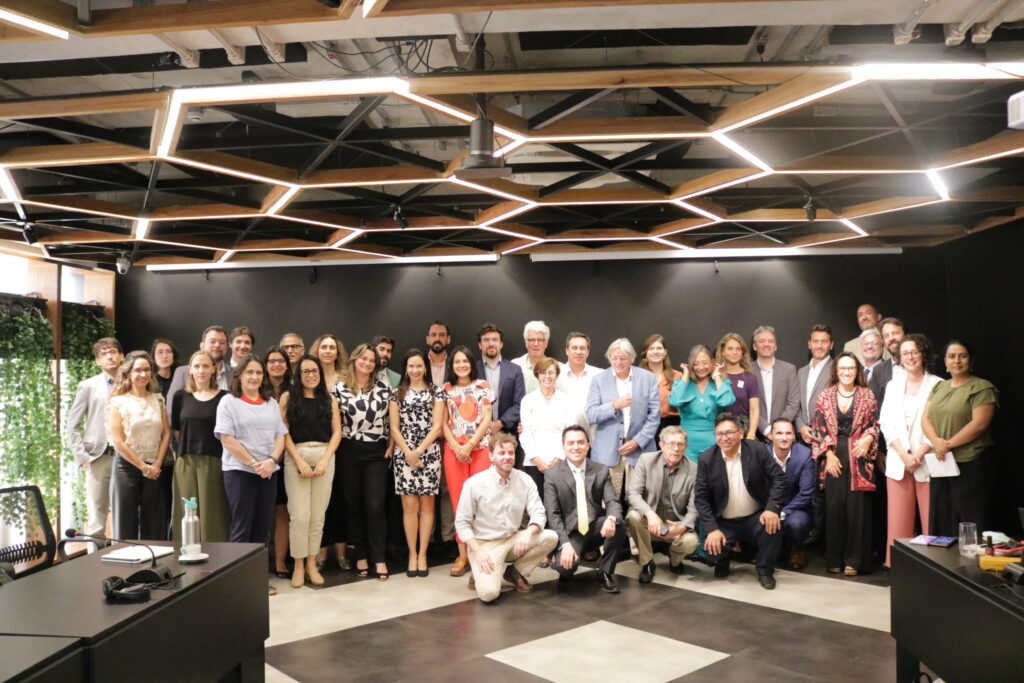
The ACTO is the only intergovernmental organization comprised of eight Amazonian countries –Bolivia, Brazil, Colombia, Ecuador, Guyana, Peru, Suriname and Venezuela– that signed the Amazon Cooperation Treaty (ACT), with the aim of striking a balance between development of the ecosystem and nature conservation.
Brasilia, 13 February 2025 (IICA). Key stakeholders involved in the protection and harmonious development of the Amazon met in Brasilia to align their strategies for promoting the financing of projects and strengthening regional cooperation.
The Inter-American Institute for Cooperation on Agriculture (IICA) was one of the participants in the first Mesa de Cooperantes of the Amazon Cooperation Treaty Organization (ACTO), a strategic space for dialogue, at the beginning of what is regarded as a decisive year for the world’s largest tropical forest.
During 2025, a series of international events will be held that will have a major impact on the future of this globally important biome.
The ACTO is the only intergovernmental organization comprised of eight Amazonian countries –Bolivia, Brazil, Colombia, Ecuador, Guyana, Peru, Suriname and Venezuela– that signed the Amazon Cooperation Treaty (ACT), with the aim of striking a balance between development of the ecosystem and nature conservation.
In 2023, the presidents of the eight countries issued the Belém Declaration, in which they established the framework for action plans for the Amazon, including 113 objectives designed to address a variety of issues crucial to the protection and sustainable development of the Amazon, such as international cooperation, biodiversity conservation, and support for local communities.
The first meeting of the ACTO’s Mesa de Cooperantes brought together representatives of cooperation agencies, development banks and multilateral organizations, who exchanged information and discussed how to pool resources and improve their joint efforts, in order to prevent duplication and optimize the use of resources in areas such as the bioeconomy and conservation.
Participants
In addition to IICA, other organizations represented at the meeting included the Inter-American Development Bank (IDB), the CAF-Development Bank of Latin America and the Caribbean, UNESCO, the FAO, the German Agency for International Cooperation (GIZ), the Development Bank (FONPLATA), and the European Union, as well as institutions such as Brazil’s National Bank for Economic and Social Development (BNDES).
The eight Amazonian countries took part along with other nations such as Switzerland, Norway, the United Kingdom and the Netherlands.
Speaking on behalf of the Institute’s Innovation and Bioeconomy Program, Cristina Costa, IICA’s technical coordinator in Brazil, presented the focus areas of the organization’s work in the Amazon, whose objectives are to strengthen sustainable management practices, promote economic diversification, recognize and value ancestral and traditional knowledge, and produce scientific knowledge and technological innovation.
IICA also aims to promote the production and use of bio-inputs in the Amazon, generate economic incentives for the conservation of natural resources, strengthen regional cooperation and knowledge sharing, and promote environmental education and awareness.
Costa provided details of the various technical cooperation projects that IICA has been implementing in the region, in response to requests from local communities and respecting the identities and specificities of the Amazon ecosystem.
Some of the specific initiatives in countries such as Brazil and Ecuador focus on issues such as the regularization of rural properties, innovation in agricultural production chains, and sustainable, deforestation-free coffee and cocoa production.
The Amazon stores 250 billion tons of CO2 and captures 100 million tons annually.
More information:
Institutional Communication Division.
comunicacion.institucional@iica.int











